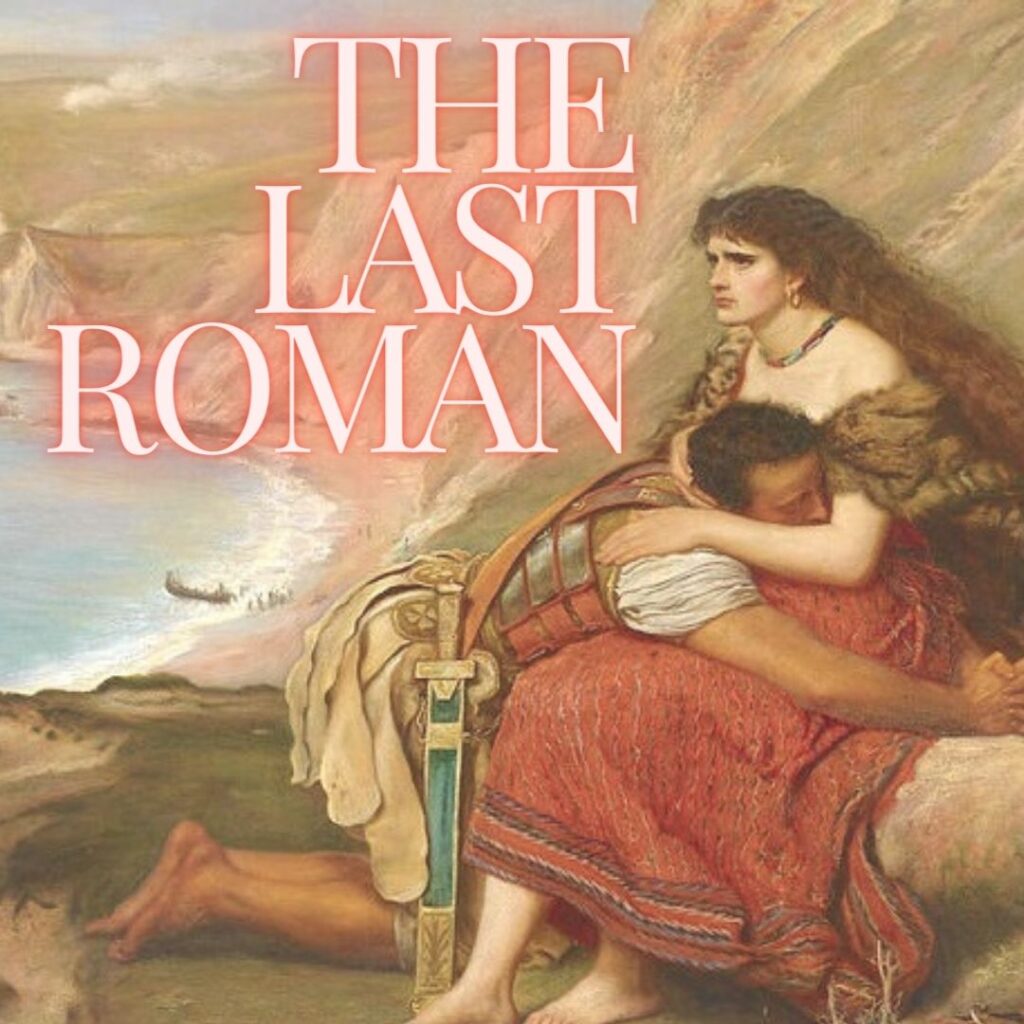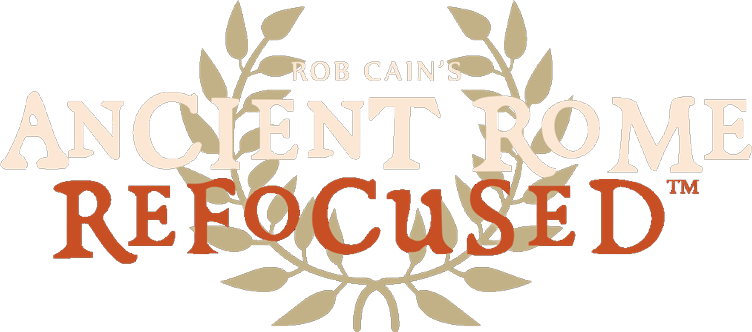Views: 3
Editor’s Note* Vicky Alvear Shecter is the author of multiple books set in the ancient world, including the YA novels, CLEOPATRA’S MOON, based on the life of Cleopatra’s only daughter, and CURSES AND SMOKE: A NOVEL OF POMPEII and the adult historical collaborations, A SONG OF WAR, A YEAR OF RAVENS, and A DAY OF FIRE. She has written a series on mythology (ANUBIS SPEAKS, HADES SPEAKS, and THOR SPEAKS) as well as two award-winning biographies for kids. She is a docent at the Michael C. Carlos Museum of Antiquities at Emory University in Atlanta.

By Vickey Alvear Shector
The Roman soldier tightens his arms around the woman’s hips. “You are my savior,” he cries.
Venta, priestess of the Cantiaci, swallows a laugh, but does not correct him.
“I will remember you always,” he blubbers.
“You must hurry,” she says, pushing him away. She is surprised at the amount of force she must employ.
“For the rest of my life, I will honor your name in the church of the one true god,” the man insists.
Venta scoffs. As if his god or gods hold any interest to her. His ancestors tried to exterminate her faith generations ago but her gods are still here while the Romans are running off in droves with their tails between their legs.
“Go,” she says firmly. “You must not tarry.” She can already feel the land’s ancient, primal gods stirring and shifting, creaking and moaning as they awaken from the deep slumber imposed by the Roman occupation. Soon, they will push out from caves and burrows and bogs, from creeks and groves and hollows. And they will be hungry for blood.
The soldier races to his ship, kicking up pebbles as if he is threshing the ground, his last act of harm to the land. Venta stands at cliff’s edge and only when she can no longer see the ship’s outline against the horizon does she grin. Her teeth gleam in the sun like the pearls that lured their first Caesar to these shores.
Inland, the people are gathering wood for that night’s celebration. Venta nods to the men and women singing with joy, their backs bent almost perpendicular with the weight of the jagged limbs they are carrying to the clearing for the Great Fire of Cleansing.
At her roundhouse, she changes into the patterned overdress the Romans outlawed centuries ago—the one identifying her ancient tribe, the one her people wove in secret in defiance of their constrictive laws. She wraps herself in the colorful, patterned wool, rich with the dark blue of the waters, the white of the sea cliffs, the darkness of storms, and the secret gray her Druid rank.
Taking long strides, Venta passes a group of villagers rapidly dismantling a wall surrounding one of the many abandoned villas. The stones will be used as they once were—as they are meant to be used—as shrines for the living spirits of the earth and as markers for lands shared by all.
“The Romans all gone, then?” a man shouts.
“Almost,” she calls and they laugh.
When she enters the prisoner’s small, dark house, the other Druid priests are already there, waiting for her.
“This is an outrage,” the prisoner, a man in a long dirt-colored tunic complains. “I am not an outsider! I was born here.” He clutches a crudely carved wooden cross hanging from his neck.
Venta turns to an elder and asks, “What hear you from the other tribes?”
“The Catuvellanuni are clearing Londinium now. The Iceni and the others tribes are doing the same, reclaiming the land and the largest villas from those Romans who foolishly chose to stay.”
“What are you saying?” the prisoner cries. “My brother-in-law owns the villa near the hill of the horns! He did not leave. You cannot claim what is not abandoned.” Then he pales. “Wait, you did not kill them, did you? Even the children?”
“Of course not,” Venta says. “The children of Romans left behind are being doled out as servants to those who once were made to serve them.”
The man groans. “But I am a Roman citizen,” he insists. “You cannot harm a Roman citizen!”
Venta cocks her head at the man. Does he really think Roman law holds now—especially after their occupiers left them without a thought or concern for their wellbeing?
“We congregate at sundown,” she reminds the assembled Druids.
“Release me at once,” the prisoner wails, a note of fear breaking through his Roman arrogance. As they shut the door behind them, his pleas turn into desperate prayers in formal Latin.
At dusk, every able-bodied Cantiaci, wearing tribal patterns—some with painted blue in their hair or on their cheeks—gathers in the woods. The clearing echoes with laughter, whoops, and song, with children screeching and dogs barking.
The crowd quiets as Venta approaches the immense iron cauldron in the center of the clearing. She holds up her arms to the first star in the sky as if calling down the darkness, then pours a gleaming libation into the sacred mead. The acrid tincture ignites the yeasty, honeyed scent of the thick brew.
“Drink and let us welcome the return of our Old Gods and the Old Ways!” Venta calls, opening her arms and stepping away. She and her fellow priests have already imbibed the sacred potion that has been a Druid secret since the beginning of Real Time.
People rush to the pot—many carrying ancient horns from generations past—and scoop up the brew. Faces contort with both pleasure and pain at the taste.
As full dark descends, Venta feels the shift of emergence. She catches glimpses of horned gods and glimmering sprites darting between the trees, poking heads from holes, and climbing down high, rustling branches.
Welcome, welcome.
When the night is purple-dark, Venta gives the signal to light the fire. Joyfully, the people dance around the first flames.
“It is time for the cleansing,” Venta commands. Two young men drag out their prisoner. The Roman’s arms are bound behind his back and he is naked, his pale paunch jiggling as he is dragged.
“Heathens,” he yells. “We Christians remain here to civilize you in the name of the One True God! And this is how you thank us?”
Venta raises an eyebrow. Imagine thinking there is only one god. And a weak one from a foreign land at that. Imagine being proud of how this god was crucified, even as they gleefully tortured her own innocent people in the same horrible way.
“We have peered into the future and know our true enemy,” she says in a strong voice, stilling the crowd. “And it is you and your kind, Christian priest.”
As his handlers begin to drag the prisoner toward the fire, the man calls out desperately. “Wait! Many of my brothers thought it might come to this and they have escaped to build their own compounds. Far from you. Let me join my brothers in these monasterions! You need never see us again.”
Venta had noted the glut of empty churches and abandoned homes bearing crosses, but she had assumed the followers of their strange religion had left along with their Roman friends, families, magistrates and soldiers. But this Roman claims their priests had not departed. That they are congregating in isolated compounds.
The audacity of their actions, of taking fertile land wherever and whenever they want without consulting her people’s leaders stuns her.
“Bring him to me,” she commands. Rage flashes through her as she inspects the man’s tonsured scalp. Before the Romans befouled the land, only the highest Druid priests shaved the crown of their heads, and only after decades and decades of devotion and study. That the Romans outlawed it for her people while Christian priests adopted the practice to lure her people into their shameful faith is yet more proof of their evil.
Just as she is about to call for the priest’s sacrifice, a vision of the future flickers in her mind’s eye. She pauses, eyes wide and far-seeing. Through the mist, emerge shadowy dragon ships landing on her shores. Huge bear-like men waving swords swarm the Christian compounds, stealing everything and killing all of the priests before sailing off again.
Her skin tingles as she understands what the gods are telling her. These monasterions of Christians are useful. They will buffer her people. The Christians will be sacrificed to the invaders and their cursed faith will finally die.
She steps back. “Let him go.”
The crowd roars in disapproval. They came for a cleansing. Venta puts her arms up. “The gods have sent me a vision. These Christians will buffer us from invaders.”
Angry young men hold up begrimed ancient swords and shields they had long ago buried in the ground to keep them safe from Roman hands. “We do not hide behind fat foreign priests! We will fight off enemies ourselves!”
“Let these Christians die first,” Venta calls. “And their faith with them!”
The power of her visions is well known. The people trust her. A majority roars in agreement. Venta gives the signal to release the Roman priest into the future she has foreseen and he stumble-runs into the dark, white buttocks bobbing like the backside of an injured deer.
Venta, priestess of the Cantiaci, smiles. The gods have spoken. She has listened. The Christians will die at the hands of invaders and the Old Ways will prevail. For all time.




